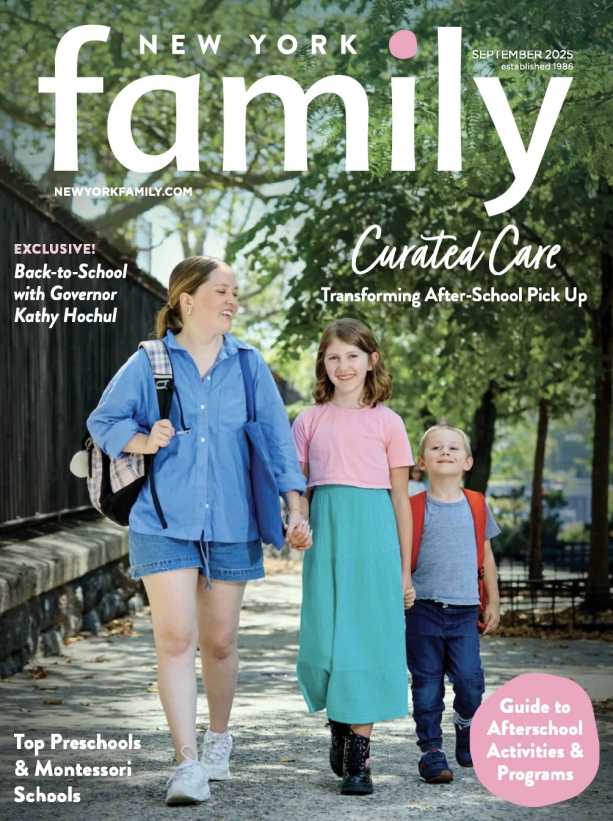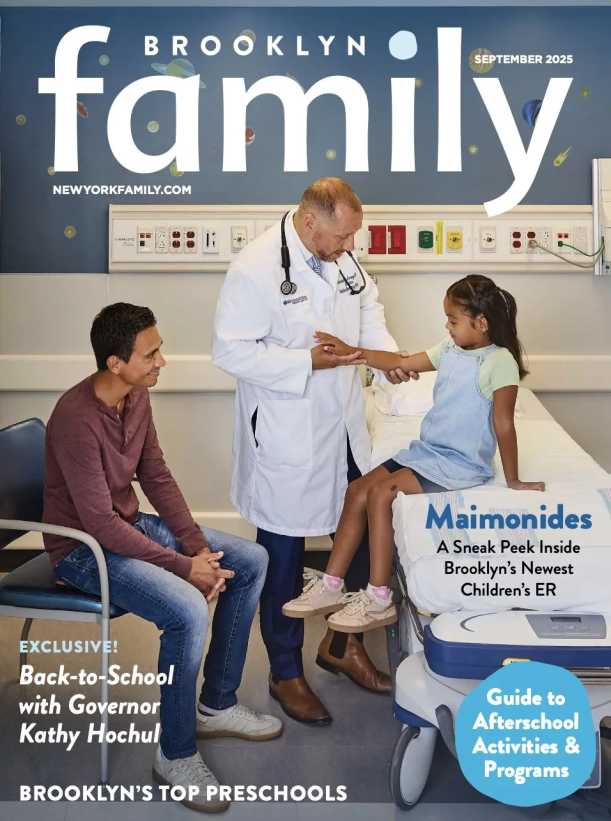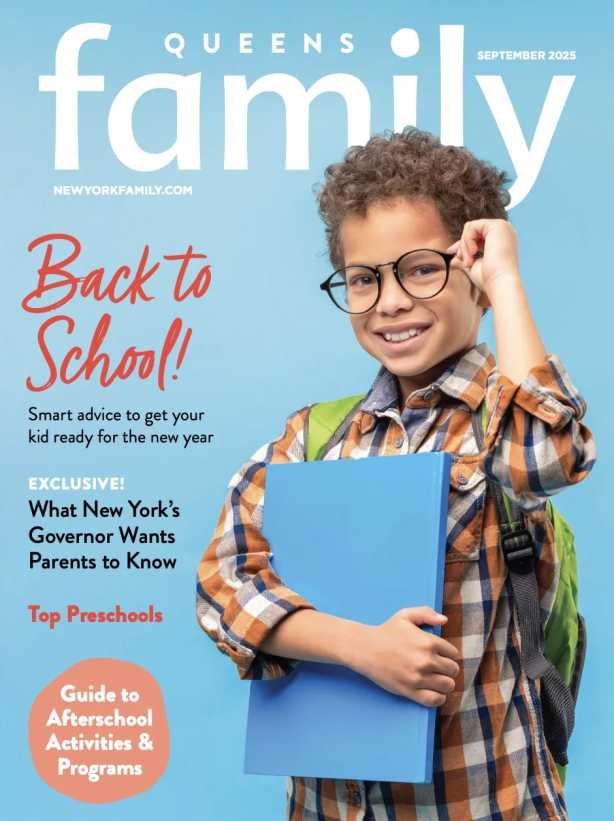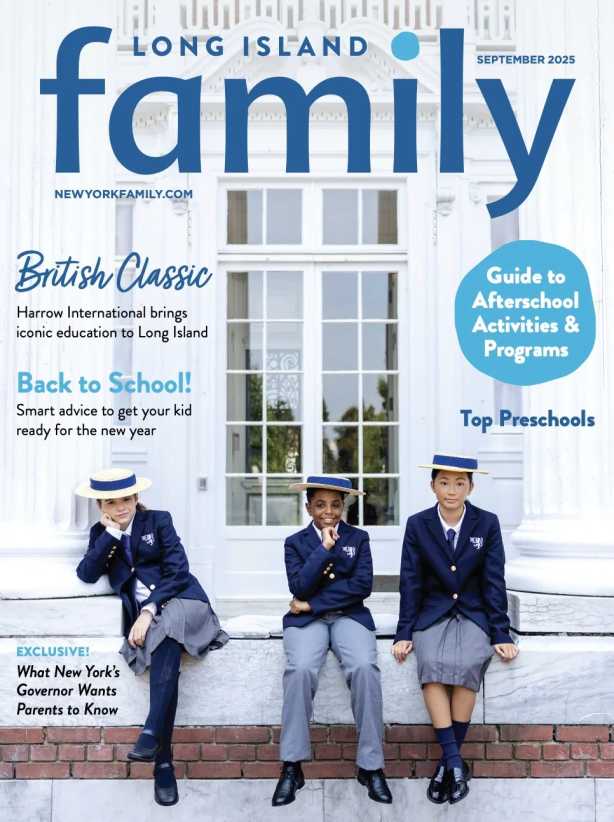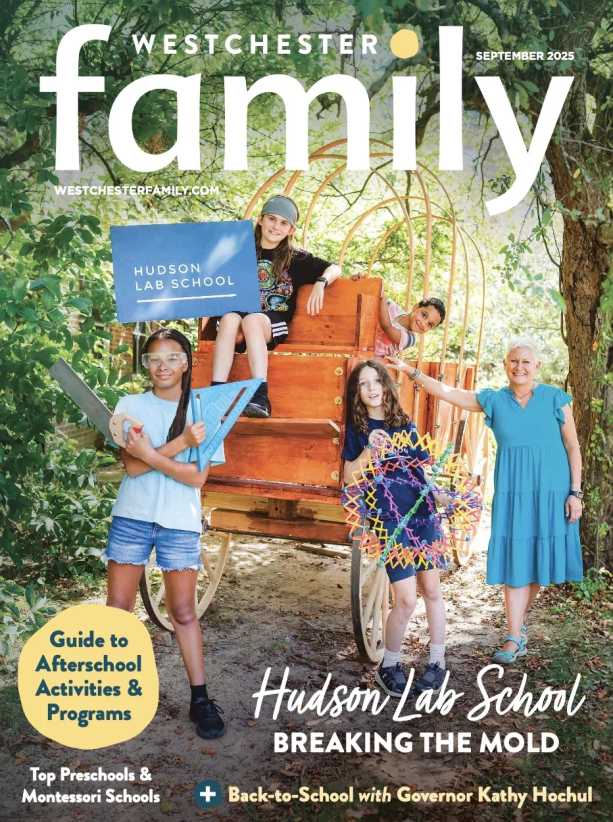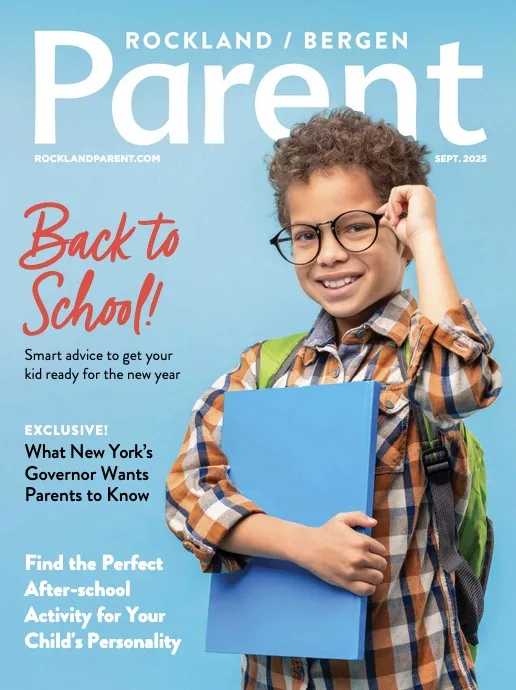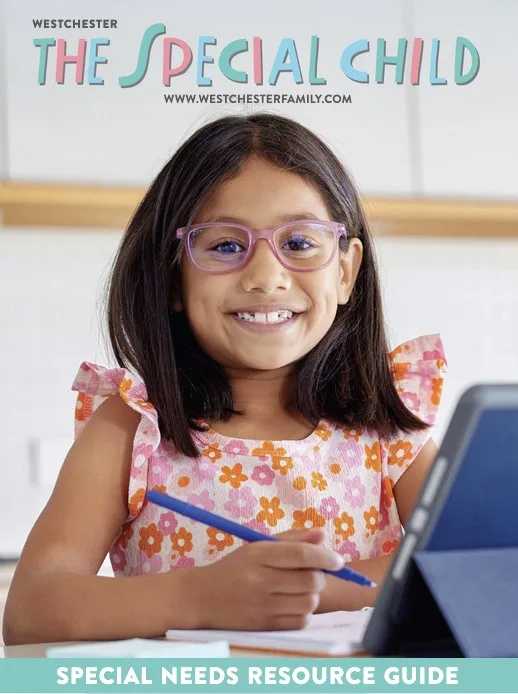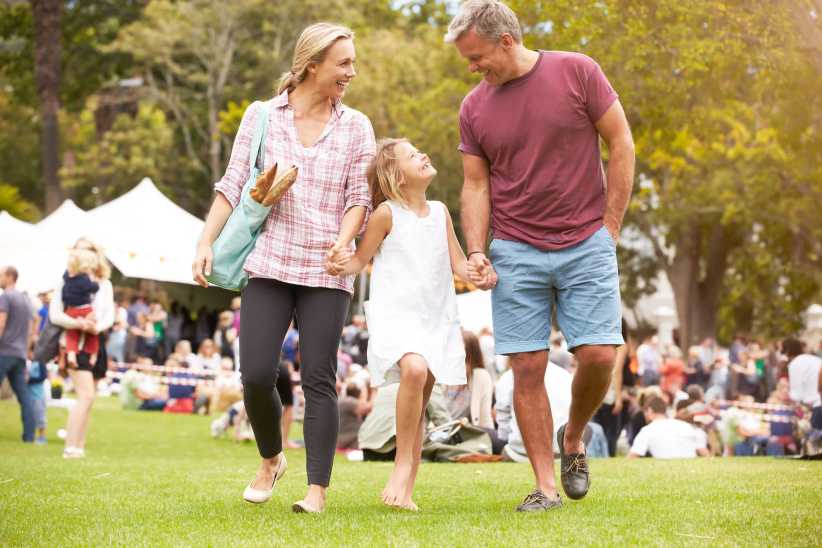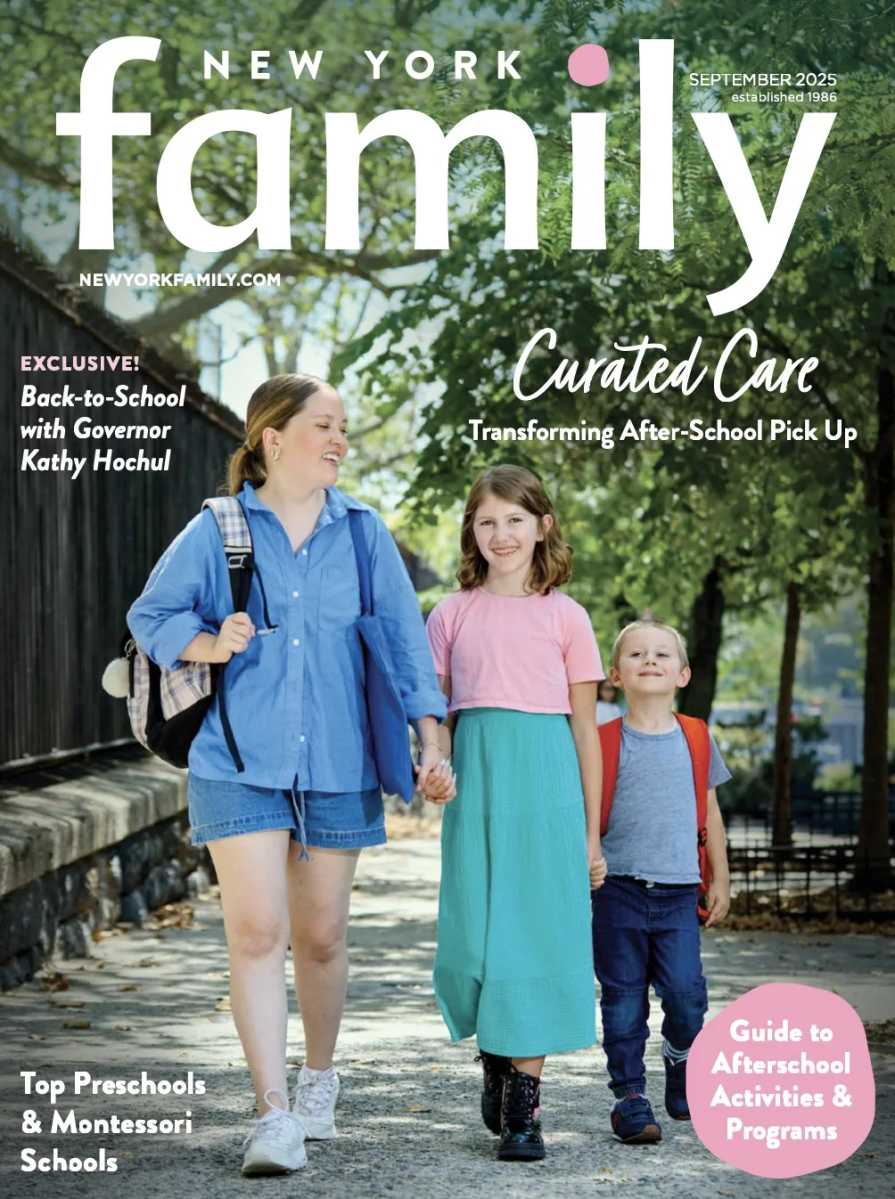Editor’s note: New York Family readers can receive 20 percent off their tickets to the the biggest family reunion in history by entering the code NYFAMMAG at checkout! The reunion will be held on Saturday, June 6, at the New York Hall of Science on the grounds of the World’s Fair. There will be talks by celebrities, comedians, and scientists, as well as music, food, exhibits, contests, and games for all ages. Among the many notable cousins planning to participate are Dr. Oz, Daniel Radcliffe, Henry Louis Gates, and Nick Kroll. Click HERE to purchase!

Sometime around the turn of the last century, the great-grandfather of author and Esquire editor A.J. Jacobs was waiting to eat a bowl of soup. On this particular day, he was also waiting for his wife and children’s ship to arrive from Lithuania. As the legend goes, the pot of soup was spilled, and being a hungry man, Jacobs’ great-grandfather was inclined to wait for another one. Meanwhile, a certain wife and her children disembarked onto the docks at Ellis Island after a month’s long journey at sea to be greeted by…not their patriarch. Imagine the panic and distress abounding on both sides of the New York Bay, the tyranny of that spilled bowl of soup (let’s hope the next bowl was worth the wait, grandpa!), and when Jacobs’ great-grandfather finally recovered his wife and children from Ellis Island, the flood of relief and the makings of a great story of American beginnings.
The story of the spilled soup could be yours or mine. That is metaphorical, of course—most of us have family lore of missed connections or fortuitous circumstances that have conspired to make possible our very existences. But it’s also quite literal, as in Jacobs’ great-grandfather is very likely your ancestor, too, by distant blood or marriage, and even though you have probably never met Jacobs, he’s pretty much your cousin. Seriously.
Unlike his ancestor, though, Jacobs has arrived on the scene at just the right time. Thanks to a wild revolution in the field of collaborative genealogy, Jacobs has embarked on an epic endeavor to connect the whole human race under one huge family tree. If you are familiar with his bestselling book, The Year of Living Biblically, in which he records his attempts to follow the words of the Bible as literally as possible for a year, or Drop Dead Healthy, for which he exercised and dieted just as religiously, you know that Jacobs works on a very large scale. The idea for his latest project—to host the biggest family reunion in the world—was sparked about a year and a half ago when he received an email from a stranger who claimed to be his twelfth cousin. This cousin was part of a team of researchers and scientists who were building the global family tree, and Jacobs was on it along with up to 280 million people, all connected by blood or marriage. “You’re on it, I’m on it, Beyoncé’s on it,” he says. “For a good week I was in a rabbit hole looking at everyone I’d ever met to see how they were connected to me. Barack Obama is my aunt’s fifth great aunt’s husband’s brother’s wife’s seventh great nephew! It was amazing. The ultimate social network.”
The fact that it is now possible, for the first time ever, to figure out how we are related to anyone else on earth blew Jacobs’ mind, and he fell in love with the idea that we are all one massive family: “I thought, if I have these millions of cousins, why not celebrate that fact and throw a really big festival.” And so, this summer on June 6, at the New York Hall of Science (appropriately, also the site of the 1964 World’s Fair), Jacobs will host the largest family reunion in history. Everyone is invited, and it promises to be both very educational and lots of fun: There will be music, speakers, games, and crafts, and you’ll be able to figure out how you are related to Jacobs and anyone else you want—George Clooney, Nelson Mandela, Susan B. Anthony, and even some famous creepers, like Jeffrey Dahmer. For the kids, there will be a family-themed scavenger hunt, family trivia, and traditional family reunion activities like potato sack races and egg-on-spoon races. Sister Sledge will be singing “We Are Family,” of course, and Lisa Loeb, a cousin of Jacobs’ (and yours), will be performing songs from her children’s albums. World records will also be attempted: the biggest group hug, the largest family reunion, the most people singing along to “We Are Family.” Families can learn a little bit about their place on the family tree, and how we all share 99.9 percent of our DNA. And it should be no problem meeting your cousins from all over the world; this family tree stuff is a great ice breaker. Jacobs says he uses it like LinkedIn: “I recently emailed Sheryl Sandberg to tell her we’re cousins. She was excited, I guess.” Kids can gear up to high-five their cousin, Harry Potter—er, Daniel Radcliffe.
The best part? All proceeds from the event will go to Alzheimer’s research, education, and training. “I figure that if we are going to get thousands of cousins together, let’s do it for a good cause,” Jacobs says, adding that his grandfather had Alzheimer’s, so he has a personal connection to the disease, but on top of that, it just seemed like a great link. “Family, to me, is one of the most important things, and Alzheimer’s robs us of the memories and stories that make up our family narratives. I can’t imagine how many stories I lost when my grandfather got Alzheimer’s, and I didn’t get
to talk to him.”
So, uniting the human family, battling Alzheimer’s disease, and Sister Sledge all in one day? It’s amazing what can be accomplished when we are all related. For Jacobs, this idea carries the most weight: that a project connecting people all over the world might make the world a better place. “If we truly realize that we are one big family, maybe we’ll be a little kinder to each other,” he says. “Once we see how concretely and closely we are linked, that we share 99.9 percent of our DNA, it can’t help but change our perspectives a little.” It also prods us to think more broadly and in more inclusive ways about the idea of family. As the concept of family has evolved over the last few decades with gay marriage, open adoptions, and sperm donation, for example, Jacobs says he embraces the extension of what it means to be family, even if it’s a bit confusing for his own kids at times. “I’ll tell my boys that we are going to visit our cousins in Philadelphia,” he quips. “And they will say: ‘But everyone is our cousin!’ and then I’ll have to clarify that these are our first cousins.”

If the family tree is a bit muddled to Jacobs’ children in some ways, it’s been enlightening to so many others. His boys, Jasper, 11, and twins Zane and Lucas, 8, have really gotten into history through this project. “We can look at a historical figure like Albert Einstein,” Jacobs says. “And I can show them how they are linked to him. He is your fourth cousin’s eighth great grandfather. Now he’s not some scientist they have never heard of, he’s Uncle Albert!” When Jacobs’ wife, Julie, was reading the Laura Ingalls Wilder books with the kids, they could relate to the books on a different level knowing that, like the Ingalls family, their great, great, great-grandparents traveled in covered wagons to settle in St. Louis, MO, a fact Jacobs uncovered while doing his family research. The project has brought history out of abstraction and made it personal, tangible, and something that they can share as a family.
As Jacobs knows well, these family stories are the most important things we have, and building the family tree goes hand-in-hand with building your family narrative. The more people in your tree who have a connection to Great Grandpa Jacobowitz, Jacobs argues, then the more potential family stories you have. For people whose family stories have been disrupted by tragedies like war and Alzheimer’s disease, this massive genealogical project offers a way of tying some of the broken threads back together. The revolution in DNA testing, for example, and new global, collaborative websites like Geni and WikiTree make it possible to find cousins that people never knew had existed. “It’s changed the way I look at people,” Jacobs says. “Walking down the street, I see all these strangers, and I know we are connected. I don’t know how, but we are connected in a hundred different ways. It’s a wild feeling, and you just feel less alone.”
To learn more about the Global Family Reunion, visit globalfamilyreunion.com!
